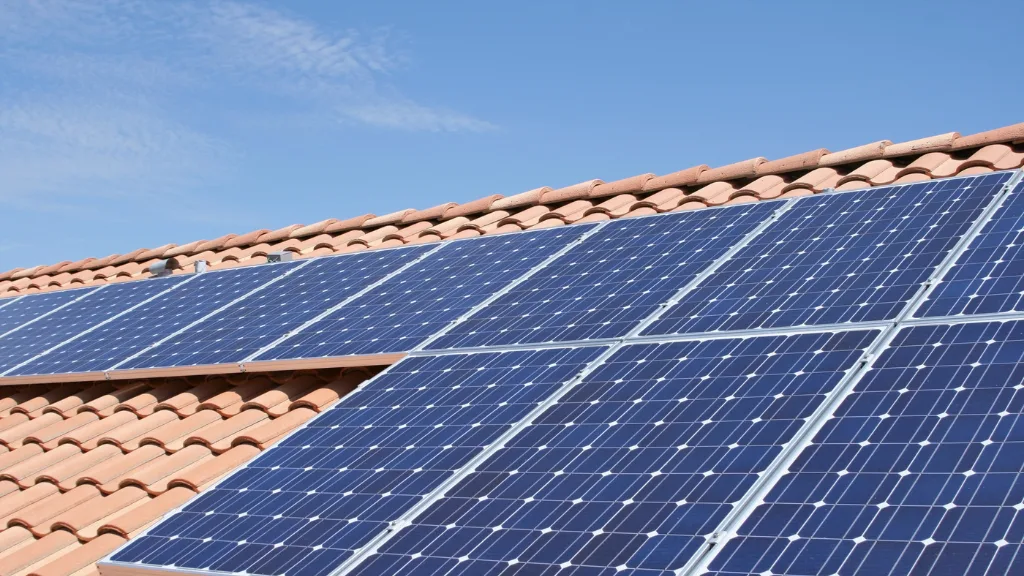
Solar roof tiles are a revolutionary technology that combines the functionality of solar panels with the aesthetic appeal of traditional roofing materials. These tiles not only generate clean energy but also enhance the curb appeal of your home.
In this comprehensive guide, we’ll explore the advances in solar roof tiles, including the different types of solar tiles available and their advantages and disadvantages. We’ll also discuss the installation process and the potential cost savings and environmental benefits of using solar roof tiles.
Whether you’re a homeowner considering a new roofing option or a contractor looking to offer your clients the latest in solar technology, our guide has got you covered. So, let’s dive in and learn more about the exciting advancements in solar roof tiles!
What are Solar Roof Tiles?
If you are considering installing solar panels on your roof, you may want to consider solar roof tiles. Solar roof tiles are a type of photovoltaic (PV) system that integrates directly into your roof’s shingles or tiles.
They are designed to be aesthetically pleasing while also generating electricity from the sun.
Definition
Solar roof tiles are made of durable materials that can withstand the elements and provide your home with renewable energy. They are typically made of silicon, which is a semiconductor that absorbs sunlight and converts it into electricity.
Unlike traditional solar panels, solar roof tiles are designed to blend in with your existing roof. They come in a variety of colors and styles, so you can choose the one that best suits your home’s aesthetic.
Materials
Solar roof tiles are made of a variety of materials, including glass, silicon, and metal. The glass layer is designed to protect the silicon cells from the elements, while the metal layer provides support for the tiles.
The silicon cells are the most important component of the solar roof tile, as they are responsible for converting sunlight into electricity.
Solar roof tiles are also designed to be lightweight and durable. They are typically made of high-quality materials that can withstand hail, wind, and other types of weather.
Additionally, they are designed to be easy to install and maintain, so you can enjoy the benefits of solar energy without any hassle.
Solar roof tiles are a great option for homeowners who want to save money on their energy bills and reduce their carbon footprint. They are more expensive than traditional solar panels, but they offer a number of benefits that make them worth the investment.
In conclusion, solar roof tiles are an innovative solution for homeowners who want to generate their own electricity while also maintaining the aesthetic of their home. They are made of high-quality materials that can withstand the elements, and they are designed to be easy to install and maintain.
If you are considering installing solar panels on your roof, solar roof tiles may be the perfect option for you.
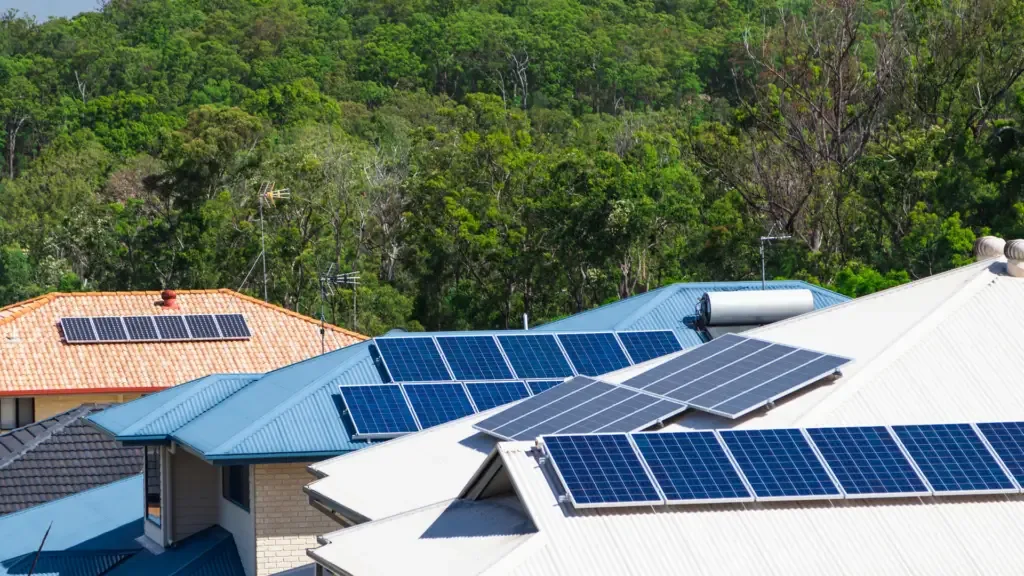
Benefits of Solar Roof Tiles
If you’re considering installing a new roof or replacing an old one, solar roof tiles can be a great option. Here are some benefits of solar roof tiles that you should consider:
Cost Savings
One of the biggest benefits of solar roof tiles is the cost savings. Solar roof tiles can help you save money on your electricity bills by generating your own electricity. You can also earn money by selling excess electricity back to the grid.
In addition, solar roof tiles can increase the value of your home. According to a report by the National Renewable Energy Laboratory, homes with solar roof tiles sell faster and for more money than homes without solar roof tiles.
Energy Efficiency
Solar roof tiles are also very energy efficient. They can generate enough electricity to power your home, which means you won’t have to rely on the grid as much. This can help reduce your carbon footprint and make your home more sustainable.
Environmental Benefits
Solar roof tiles also have many environmental benefits. They can help reduce air pollution by reducing the amount of electricity that needs to be generated from fossil fuels.
They can also help conserve water, as traditional power plants use a lot of water to generate electricity.
In addition, solar roof tiles can help reduce greenhouse gas emissions, which can help mitigate climate change. According to the Department of Energy, a typical residential solar panel system can offset about 100,000 pounds of carbon dioxide over 20 years.
Overall, solar roof tiles offer many benefits that you should consider when deciding on a new roof. From cost savings to environmental benefits, solar roof tiles can help make your home more sustainable and energy-efficient.
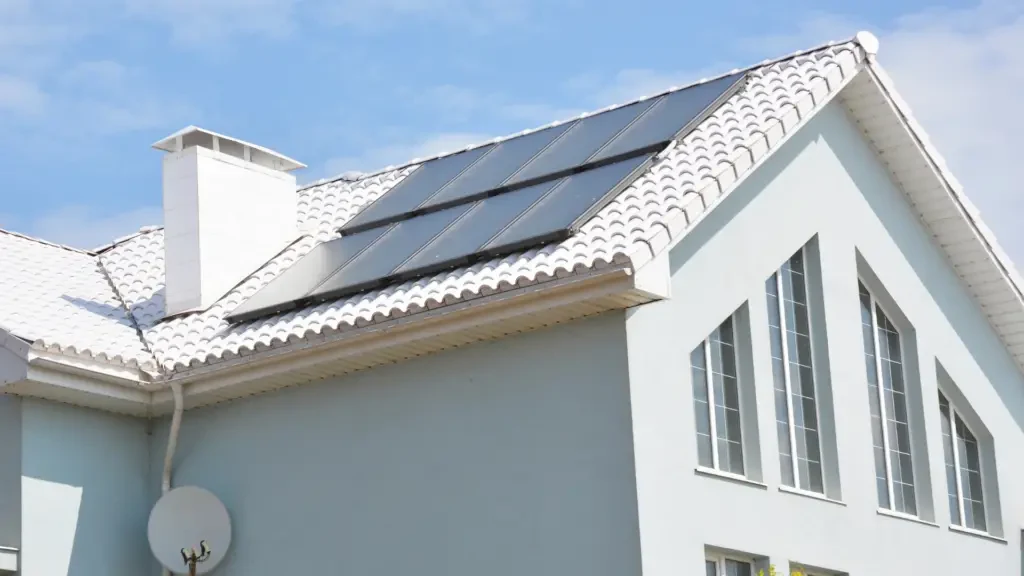
Installation and Maintenance
When it comes to installing solar roof tiles, it’s important to make sure that the installation process is done correctly. This will ensure that your solar roof tiles will work efficiently and effectively for years to come.
In this section, we will discuss the installation process, maintenance, and warranty for solar roof tiles.
Installation Process
The installation process for solar roof tiles is similar to that of traditional roofing. However, there are a few additional steps that need to be taken to ensure that the solar panels are installed correctly. Here are some of the steps involved in the installation process:
- Inspection: Before the installation process begins, a thorough inspection of the roof is conducted to ensure that it is suitable for solar roof tiles. This includes checking the roof’s structural integrity, slope, and orientation.
- Preparation: The roof is prepared for the installation process by removing any existing shingles or tiles and installing a waterproof underlayment.
- Solar Panel Installation: Once the roof is prepared, the solar panels are installed on the roof. The panels are secured to the roof with brackets and then wired together.
- Electrical Connection: The solar panels are then connected to an inverter, which converts the DC electricity produced by the solar panels into AC electricity that can be used in your home.
- Final Inspection: Once the installation process is complete, a final inspection is conducted to ensure that everything has been installed correctly.
Maintenance
To ensure that your solar roof tiles continue to work efficiently, regular maintenance is required. Here are some tips on how to maintain your solar roof tiles:
- Cleaning: It’s important to keep your solar panels clean to ensure that they are working at maximum efficiency. You can clean your solar panels with a soft brush and mild soap.
- Inspections: Regular inspections of your solar roof tiles can help identify any issues early on. It’s recommended that you have your solar panels inspected at least once a year.
- Repairs: If any issues are identified during an inspection, it’s important to have them repaired as soon as possible to prevent further damage.
Warranty
Most solar roof tiles come with a warranty that covers defects in materials and workmanship. The length of the warranty can vary depending on the manufacturer. It’s important to read the warranty carefully to understand what is covered and what is not.
Additionally, some manufacturers offer extended warranties for an additional fee. It’s important to weigh the cost of the extended warranty against the potential cost of repairs or replacement.
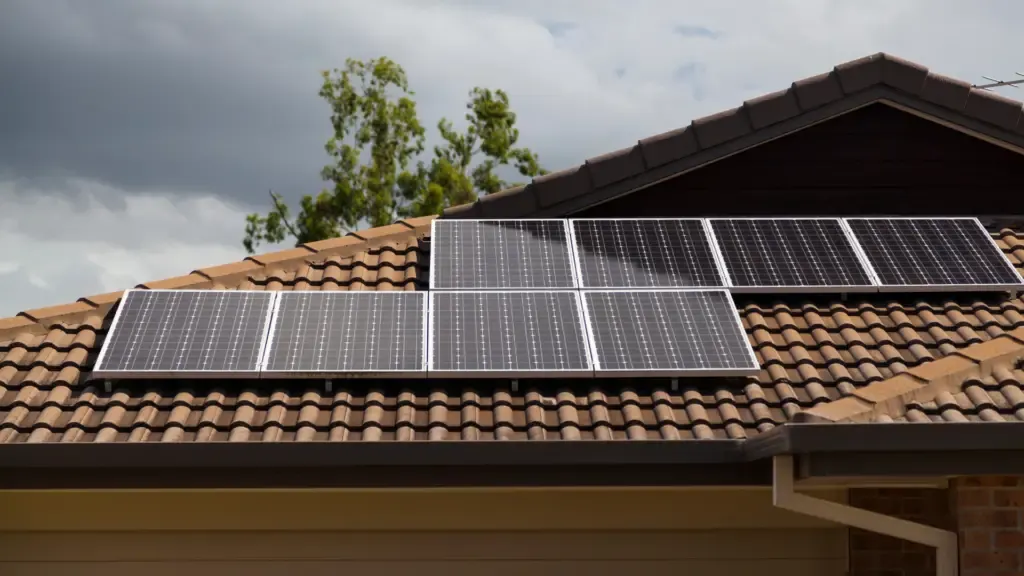
Financing Options
If you’re looking to install solar roof tiles, financing options are available to help you make the investment. Here are some financing options you may want to consider:
Leasing and Financing
Leasing solar roof tiles provides an option for homeowners who don’t want to pay the full cost upfront. Instead, you make monthly payments to the leasing company for the use of the solar roof tiles.
Leasing agreements typically last for 20 to 25 years, and at the end of the term, you may have the option to purchase the solar roof tiles or return them to the leasing company.
Financing options, such as loans, are another way to pay for solar roof tiles. Many lenders offer loans specifically for solar installations, with interest rates that are typically lower than credit card rates.
Some loans may require a down payment, while others may not. Be sure to compare loan terms and rates to find the best option for you.
Batteries and Solar Panels
In addition to financing options for solar roof tiles, you may also want to consider financing for batteries and solar panels. Batteries can store excess energy generated by your solar roof tiles, allowing you to use the energy when the sun isn’t shining. Financing options for batteries may include leasing or financing.
Solar panels are another important component of a solar energy system. If you need to replace your existing solar panels or want to add more panels to your system, financing options may be available. Again, be sure to compare loan terms and rates to find the best option for you.
Overall, there are many financing options available for those looking to install solar roof tiles, batteries, and solar panels. Whether you choose to lease, finance, or use a combination of both, be sure to do your research and find the best option for your budget and energy needs.
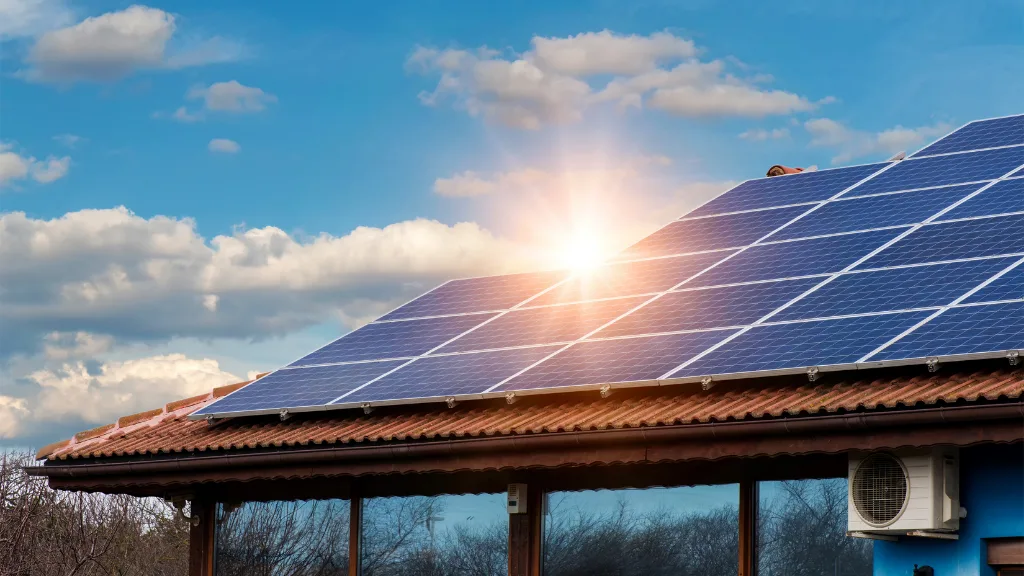
Choosing the Right Solar Roof Tiles
When it comes to choosing the right solar roof tiles, there are a few key factors to consider. In this section, we’ll explore some of the most important considerations, including contractors and manufacturers, structure and detail, examples, and research.
Contractors and Manufacturers
One of the first things to consider when choosing solar roof tiles is the contractor and manufacturer. It’s important to choose a reputable contractor who has experience installing solar roof tiles.
A good contractor will be able to provide you with information about the different types of solar roof tiles available, as well as the pros and cons of each.
When it comes to manufacturers, there are several to choose from. Some of the most well-known manufacturers include Tesla, SunPower, and CertainTeed.
Each manufacturer has its own unique set of features and benefits, so it’s important to do your research and choose the one that best meets your needs.
Structure and Detail
Another important consideration when choosing solar roof tiles is the structure and detail of your roof. It’s important to choose solar roof tiles that are compatible with your roof’s structure and design. For example, if you have a flat roof, you’ll need to choose solar roof tiles that are designed for flat roofs.
In addition to structure, it’s also important to consider the detail of your roof. This includes things like the slope of your roof, the number of roof vents, and the placement of your chimney.
All of these factors can impact the effectiveness of your solar roof tiles, so it’s important to choose tiles that are designed to work with your specific roof.
Examples and Research
Finally, it’s important to look at examples and research when choosing solar roof tiles. This can help you get a better sense of what different types of solar roof tiles look like, as well as how they perform in real-world situations.
There are several resources available for researching solar roof tiles, including online reviews, manufacturer websites, and industry publications. By doing your research and looking at examples, you can make an informed decision about which solar roof tiles are right for you.
In summary, when choosing solar roof tiles, it’s important to consider factors such as contractors and manufacturers, structure and detail, and examples and research.
By taking these factors into account, you can choose solar roof tiles that are not only effective at generating energy, but also compatible with your roof’s design and structure.
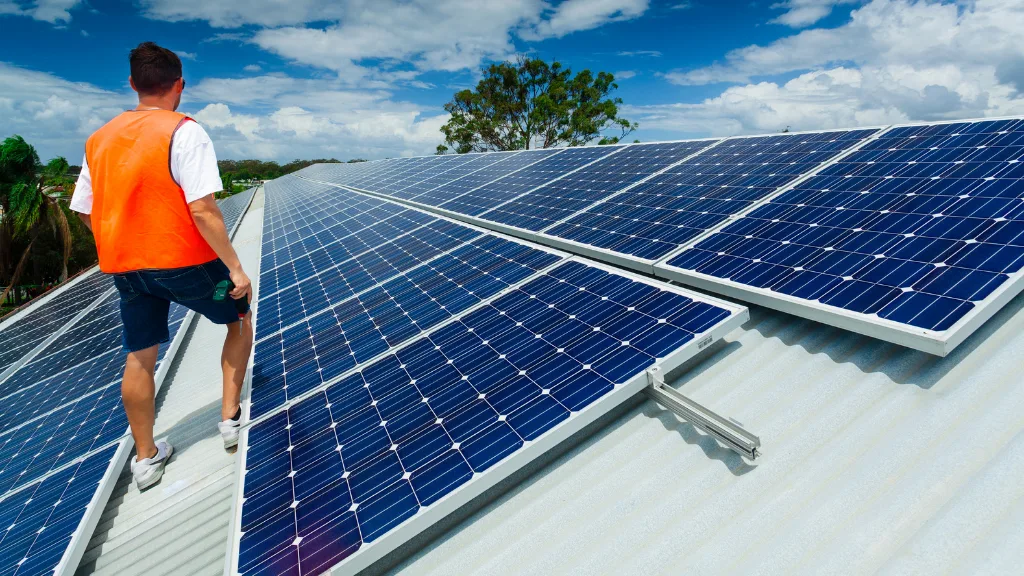
Comprehensive Guide to Solar Roof Tiles
Solar roof tiles are an innovative way to generate electricity while also serving as a roofing material. They are designed to blend in with your existing roof and provide a seamless, aesthetically pleasing look.
Here’s a comprehensive guide to solar roof tiles:
Types of Solar Roof Tiles
There are two main types of solar roof tiles: photovoltaic (PV) solar roof tiles and solar thermal roof tiles. PV solar roof tiles generate electricity from the sun’s energy, while solar thermal roof tiles use the sun’s energy to heat water or air.
Efficiency of Solar Roof Tiles
The efficiency of solar roof tiles varies depending on the type and manufacturer. On average, PV solar roof tiles have an efficiency rating of around 15-20%, while solar thermal roof tiles have an efficiency rating of around 50-80%.
It’s important to note that the efficiency of solar roof tiles can be affected by factors such as shading, orientation, and weather conditions.
Installation and Maintenance
Installation of solar roof tiles should be done by a professional to ensure proper installation and avoid any damage to your roof. Maintenance of solar roof tiles is minimal and typically involves cleaning the tiles periodically to remove any dirt or debris that may accumulate.
Cost
The cost of solar roof tiles varies depending on the type and manufacturer. On average, PV solar roof tiles cost around $21 per square foot, while solar thermal roof tiles cost around $12 per square foot.
It’s important to note that the cost of solar roof tiles can be offset by the electricity generated, potentially resulting in long-term cost savings.
Advantages and Disadvantages
Solar roof tiles offer several advantages, including:
- Aesthetically pleasing design
- Reduced electricity bills
- Increased home value
- Environmental benefits
However, there are also some disadvantages to consider, including:
- Higher upfront cost compared to traditional roofing materials
- Potential for decreased efficiency due to shading or weather conditions
- Limited availability of styles and colors
Conclusion
Solar roof tiles are a promising technology that offers several benefits, including reduced electricity bills and increased home value. However, it’s important to consider the upfront cost and potential limitations before making a decision.
Overall, solar roof tiles are a great option for homeowners looking to generate electricity while also maintaining the aesthetic integrity of their home.
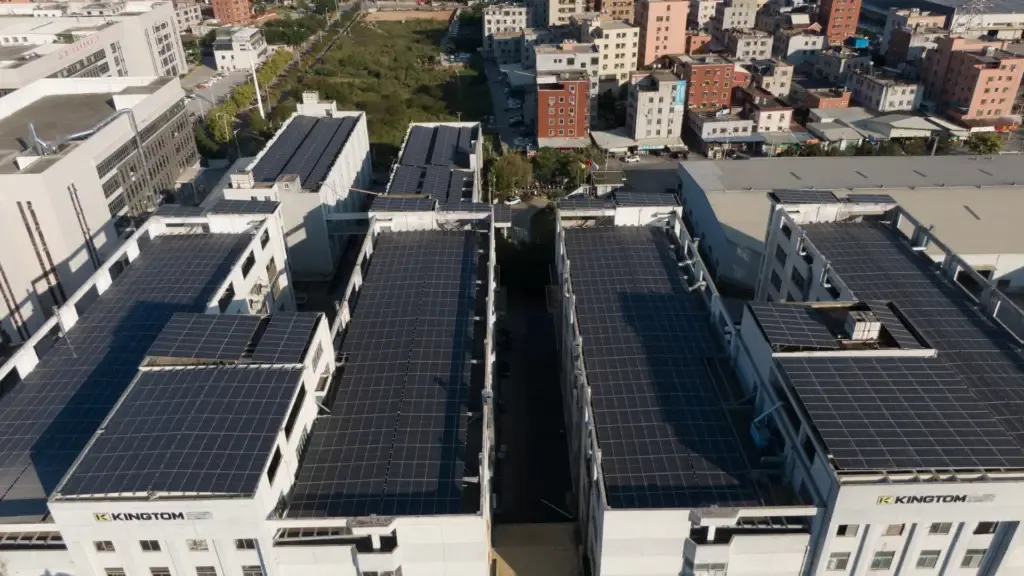
Conclusion
In conclusion, solar roof tiles are a promising technology that can help you save money on your energy bills while reducing your carbon footprint. By installing solar roof tiles, you can generate your own electricity and even earn money by selling excess power back to the grid.
If you are considering installing solar roof tiles, it is important to do your research and choose a reputable installer. Look for a company that has a clear mission to provide high-quality, sustainable energy solutions.
Check their website for customer feedback and reviews to ensure they offer reliable services.
Solar roof tiles are a long-term investment, so it is important to choose a company that offers a warranty and maintenance services to ensure your system operates efficiently for years to come.
Overall, solar roof tiles are a smart choice for homeowners who want to reduce their carbon footprint and save money on their energy bills.
With advances in technology and increased demand, solar roof tiles are becoming more affordable and accessible than ever before. Consider taking the leap and investing in a sustainable energy solution for your home.
